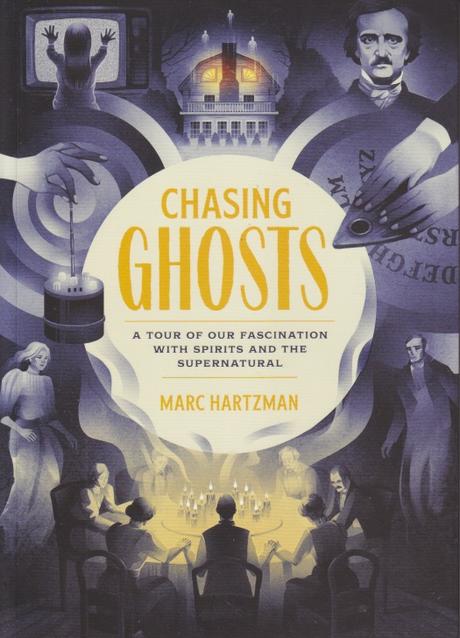
I’ve known about Quirk Books from their very first publication. That’s a rarity, I suppose, since many publishers have been around far longer than I have. I tend to think of Quirk as mainly a purveyor of unusual fiction. I’ve pitched a book or two to them myself over the years. In the last few years they’ve been producing some good nonfiction as well. The topics are, well, quirky. I just finished reading Marc Hartzman’s new book with them titled Chasing Ghosts: A Tour of Our Fascination with Spirits and the Supernatural. It’s a good compendium of material that traces the very long history of human obsession with the restless dead. It begins with some ancient ideas about ghosts and comes up to contemporary times. Not all of this can be covered with great detail, of course. But there’s a lot here. And it has a great cover.
The chapter on Spiritualism and seances is necessary, but it also reveals one of the reasons, perhaps, that modern skeptics still scoff at ghosts. Mediums (not necessarily Spiritualists) were often caught in trickery, but as Hartzman points out, that doesn’t logically imply that everything was a hoax. For me, when the rules start to include special boxes or sitting behind a curtain the old skeptic meter starts clanging loudly. Still, some of this happened because, it seems, you can’t force a ghost to attend. If there are ghosts and if they retain personalities, well, how do you like it when people tell you that you must be here at this time so I can make you do what I want you to do?
The chapter on haunted locations covers many of the expected and a few lesser known haunts. Often a very real human tragedy has occurred in such places. Is it unreasonable to think we might impress such things on our environment somehow? Or that our consciousness—which we still can’t explain scientifically—might not hang around to resolve unfinished business? The final section on using devices to “capture” ghosts brings us up to the present ghost hunter craze. The pursuit of ghosts is extremely popular, leading to the predictable result that academics shy away from it. It’s a shame, really. A few universities have, and some still quietly do, sponsor(ed) departments or facilities to study such things. It seems to me that if people have been seeing, hearing, and feeling something for millennia, it might be worth some serious effort to find out what’s going on. Until then, quirky books like this one will always be a guilty pleasure.
